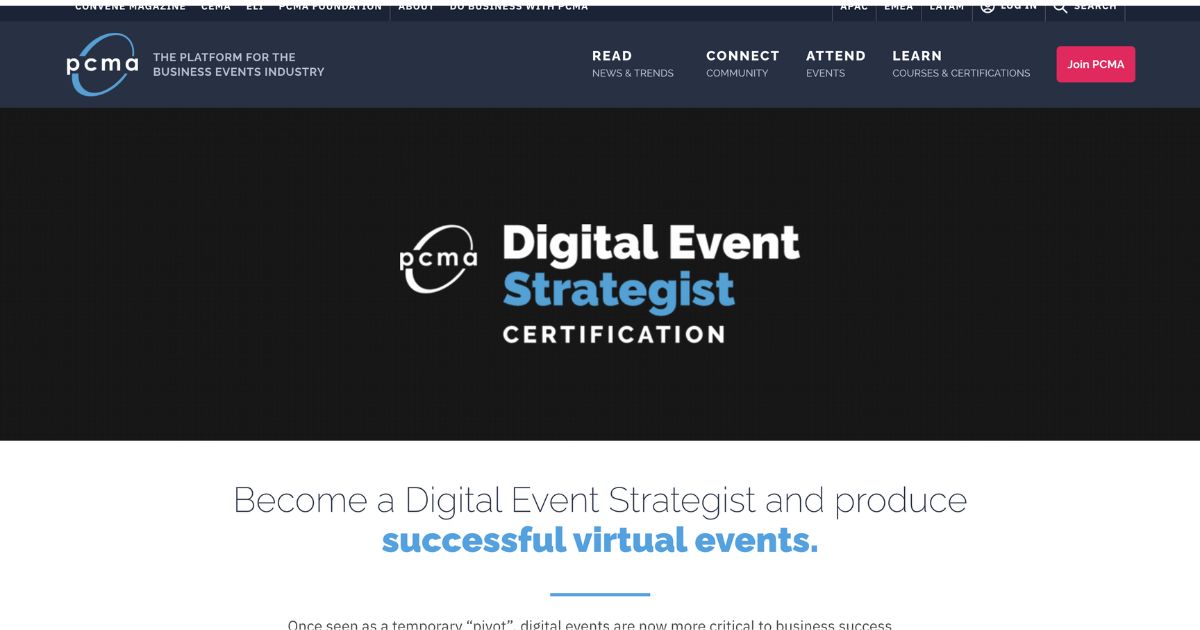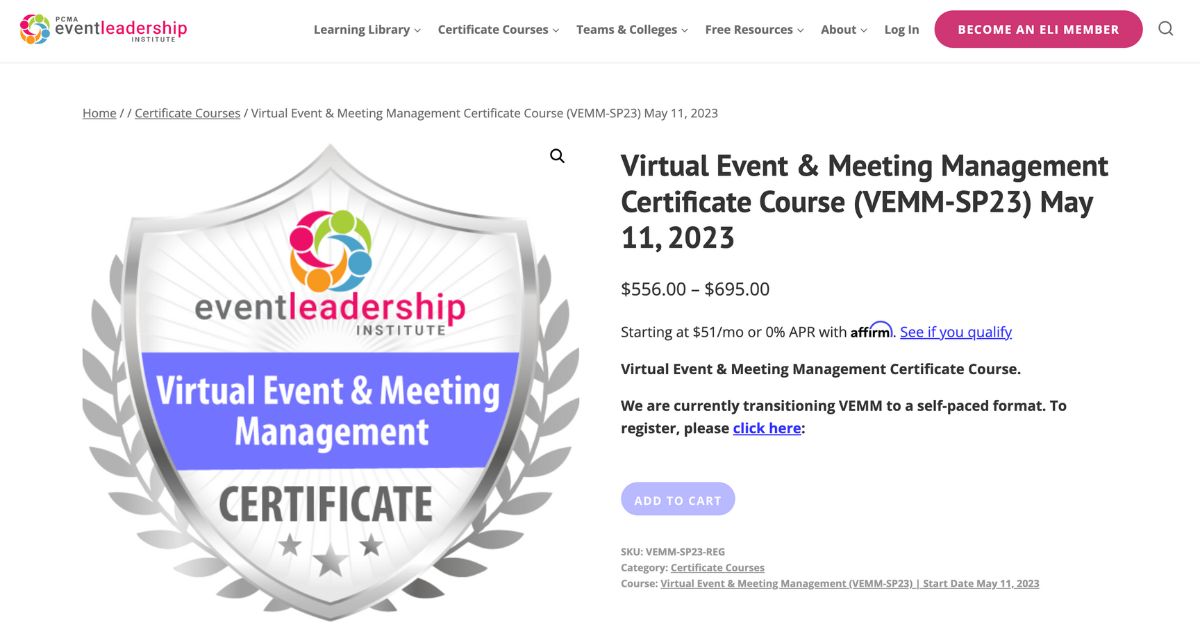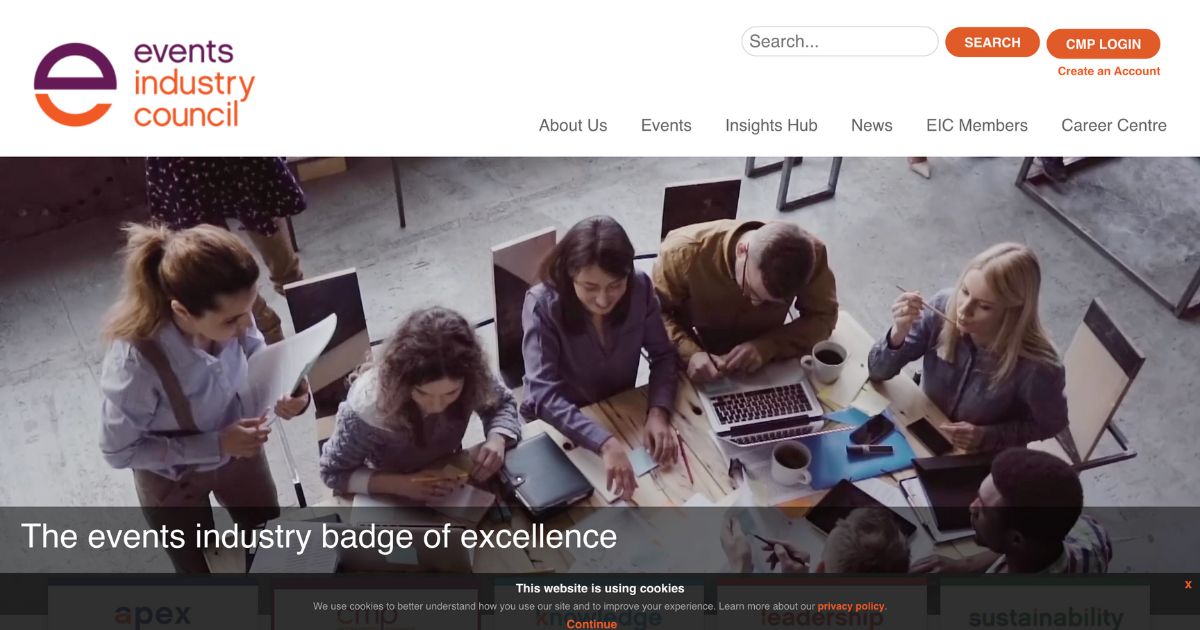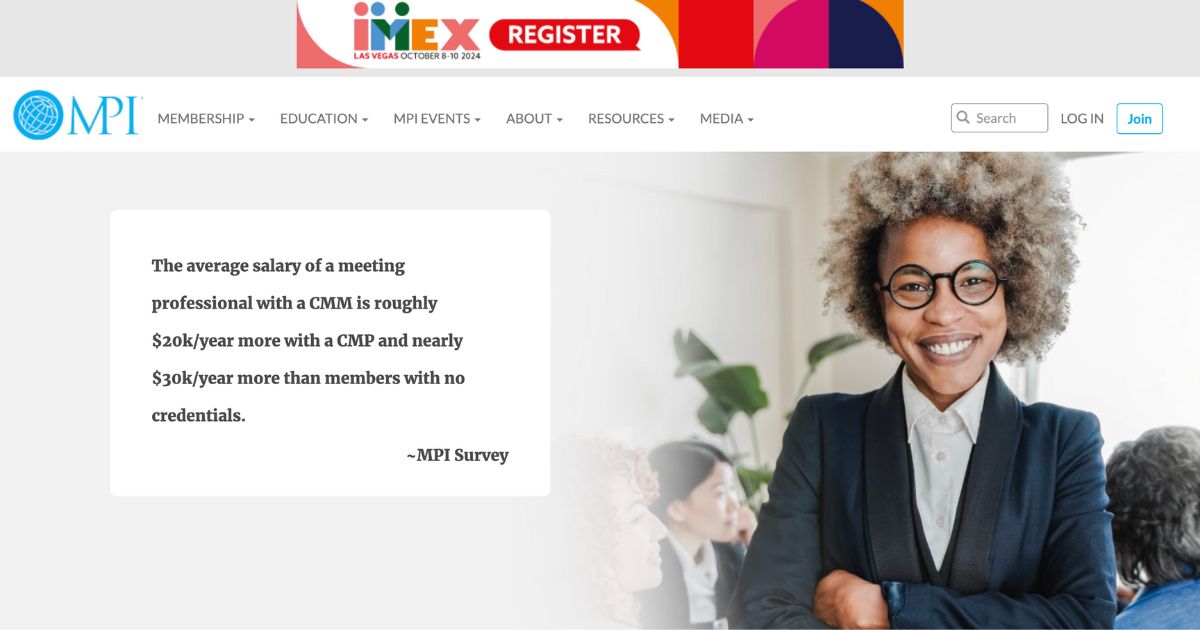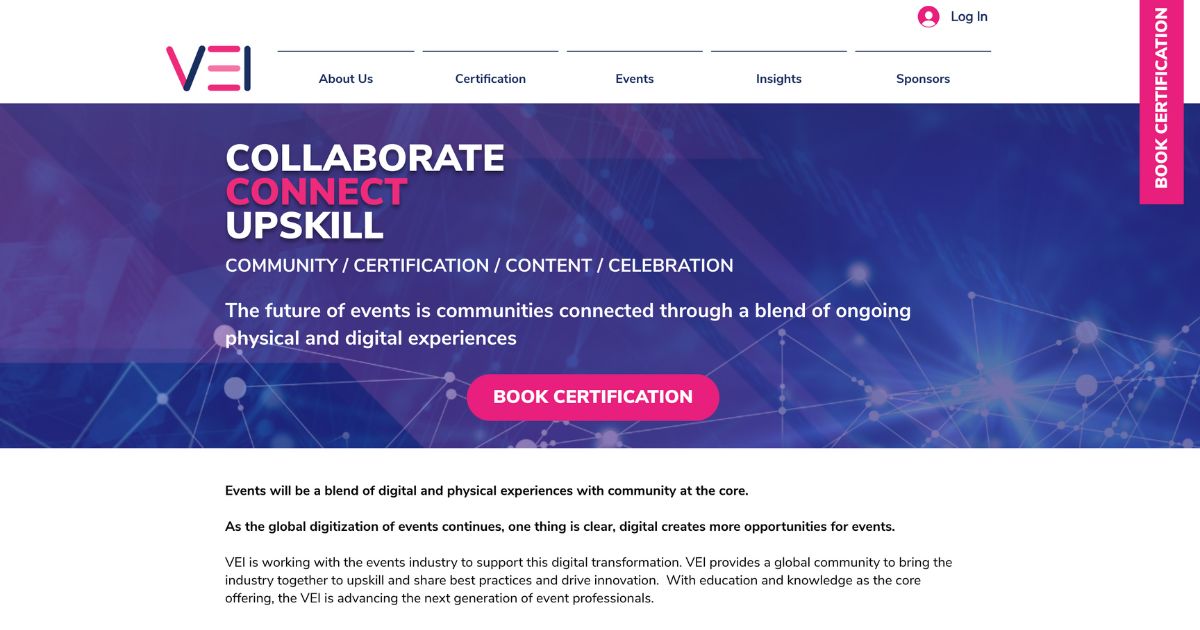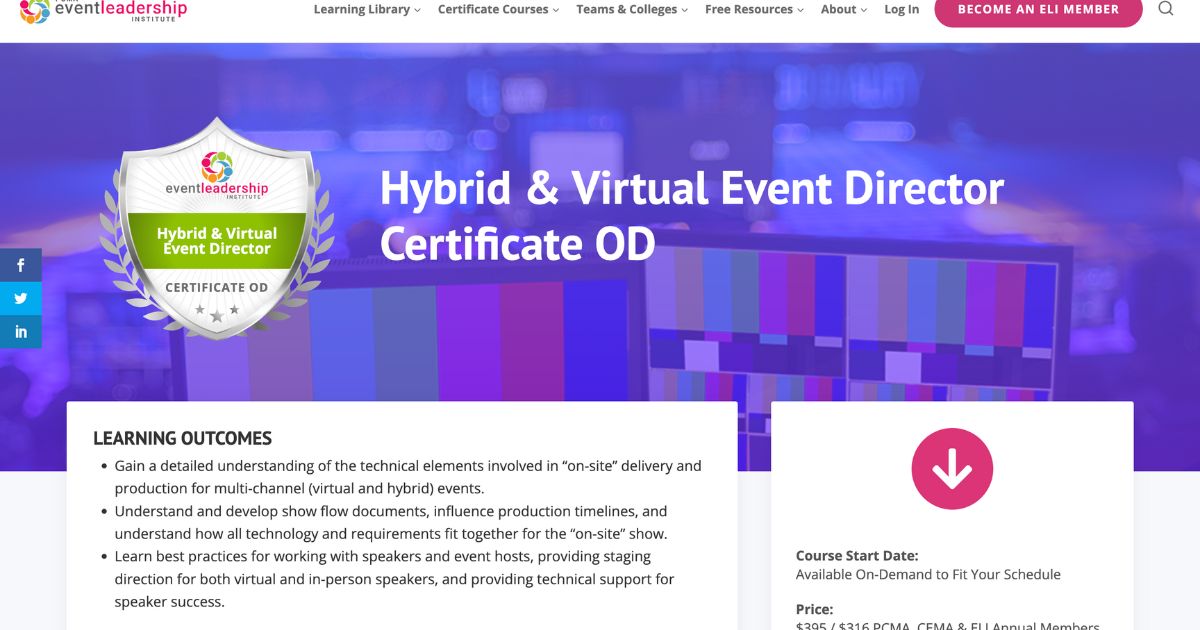Today, companies throughout the globe are embracing virtual events more than physical events due to the urgent demand for them, coupled with the effect of the COVID-19 pandemic. This demand has shown why virtual event planning platforms are sought after, and the result is that their CAGR is projected to rise by 16.6% by the year 2033, according to Future Market Insight.
To successfully plan virtual events, some businesses often require a team member to oversee the process. Where the necessary expertise is lacking on the team, additional funds go into hiring a virtual event planner with experience in the Event Management field.
To create interesting and interactive experiences for participants, virtual event planners use digital platforms, video technology for events, and various online tools.
In 2024, a mix of abilities, knowledge, and experience will be necessary to become a virtual event planner. A virtual event planner’s job grows significantly as technology and the events industry continue to develop. Here is how to become a virtual event planner and ways to succeed as a virtual event planner in 2024:
How to Become a Virtual Event Planner in 2024
1. Recognize the Role:
Discover and comprehend a virtual event planner’s responsibility in 2024. Keeping up with the most recent trends, technologies, and best practices in virtual event planning is part of this. Here are a few tips for successful virtual event planning in 2024.
2. Complete Relevant Education:
A formal degree in event planning is not always necessary, but it can give you a strong foundation. We discussed this assertion in one of our previous blog posts on How to become an event planner without a degree. However, if you are thinking about enrolling in a virtual class to get relevant education in event management, you can check out the Best Online Event Planning Certification Course in 2024.
3. Acquire Event Planning Experience:
If you haven’t already, begin by gaining knowledge of conventional event planning. Many of the skills you gain from organizing physical events may be applied to virtual events. You can do this by volunteering at events, doing an internship with an event planning company, or working in a position related to events, such as marketing or hospitality. Real-world experience is essential for developing transferable skills and contacts within the industry. We ought to inform you that internships may be your first bet to securing your first job in the industry. If you want a guide, here are the 5 tips for turning internship placement into a job.
4. Pick up Technical Knowledge:
Virtual events necessitate familiarity with a range of platforms, the best virtual conference technologies, and applications. Learn about streaming platforms, event management software, virtual event platforms, video conferencing tools, and other pertinent technology. Try to develop important event planning abilities including organization, time management, detail-oriented, and the capacity to handle several jobs at once.
5. Discover Virtual Event Platforms:
Learn about the top virtual event platforms that will be available in 2024. For managing and presenting virtual events, these systems are essential. Hopin, Remo, Zoom Events, and other platforms are examples of popular ones. Recognize their characteristics, capabilities, and restrictions.
You may have missed: How to get Sponsorship for an event.
6. Create Your Niche or Specialty Services:
Think about focusing on a certain event planning niche, such as weddings, corporate events, nonprofit events, or social gatherings. You can better focus your abilities and sell yourself by specialization to easily become a sought-after virtual event planner.
7. Improve Communication Skills:
Working with clients, suppliers, and team members requires effective communication skills. You will manage remote event coordination as a virtual event planner, thus, you need to have good communication and presentation skills. Where your Professional Speakers will make presentations, it is advisable as a virtual event planner to know effective presentation tips so that the messages that are passed to your attendees are beneficial.
8. Create a Portfolio:
To become a virtual event planner and a successful one at that, you must create a portfolio that highlights your offline and online event planning experiences. No matter how small the event is, or may be a rookie event; do not worry! Describe the events you have been part of, including your role, responsibilities, and results. Potential clients or employers will be able to see this as proof of your expertise.
If you struggle with identifying platforms to start developing your virtual event portfolio, use People Connect LLC, their Business registration profile setup can easily allow you to create your virtual planner event portfolio.
9. Establish Relationships and Networks:
You will not become a virtual event planner by sitting at your home or office building no connection. In the event planning business, networking is essential. Attend seminars, webinars, and virtual conferences on technology and Event Management. Join reputable organizations such as People Connect LLC, where Business Networking and Leadership events are being organized and listed, to make contacts with business leaders, potential customers, and Vendors.
10. Keep up with trends:
The events sector is constantly evolving. Keep up with the newest developments in virtual event planning, such as emerging technology, engagement tactics, and design ideas.
Read More: 10 Virtual Event Ideas your audience will love.
11. Recognize client needs:
Successful event planning requires paying close attention to and comprehending the needs and preferences of the client. If you are the type that does not pay attention to details, you may want to develop that skill going forward to become a virtual event planner, as every detail before and after the virtual meeting is crucial. You do not want to miss out on useful information that may help you or your attendees for future events. Recognizing your client’s needs can assist in transforming their expectations into memorable experiences.
12. Master financial management and budgeting:
If you want to become a virtual event planner, managing contracts, costs, and budgets are all part of event preparation; the same way it is for physical events. Do not think for a moment that there are no costs involved in planning and managing virtual events. There are, and sometimes they are very significant! To guarantee that events are financially successful, learn how to successfully plan and manage budgets.
13. Present Your Services:
Start marketing your online event planning services to potential customers. This may entail organizing webinars, meetings, workshops, product launches, and other events. In order to draw clients, your portfolio and networking activities will be quite important.
Read More: 5 Ways to Promote an Event.
14. Adapt and innovate:
Virtual event planning is dynamic, so you’ll need to keep up with emerging tools and customer demands. Be receptive to new ideas and imaginative fixes. Keep abreast of the latest event management software, online registration methods, and other technological advancements that can improve guest experiences and ease your planning process.
15. Seek Recommendations and Enhance:
After each event, collect client and participant’s feedback. Use their feedback to raise the caliber of your service offerings and capabilities.
Read More: What Makes a Business Successful?
16. Establish Supplier Relationships:
Establish connections with reputable suppliers like AV technicians and the Support system of the platform you use for your virtual event. Having a network of dependable providers is one of the things you need to look out for in your quest to become an event manager and also a virtual event planner.
17. Provide Comprehensive Services:
You need to offer a range of services, including event strategy, planning, logistics, technology management, engagement strategies, and post-event analysis. Thus, limiting yourself to virtual event planning may not be advisable. You need standard event management knowledge to transition into virtual event planning.
18. Consider a Certification:
As we have earlier stated, while it’s not always necessary, getting a certification in event planning or a similar sector might boost your profile’s credibility. Be on the lookout for certifications that emphasize technology and virtual events.
Your credibility can be increased by earning certifications from reputable organizations like the International Live Events Association (ILEA) or Meeting Professionals International (MPI). Remember that it takes time and commitment to become a good virtual event planner. To offer top-notch event planning services, be prepared to learn from each encounter and always hone your abilities.
19. Promote Yourself:
Using a website, social media profiles, and online directories, establish a professional online presence. Utilize these channels to communicate with potential customers and demonstrate your expertise.
20. Ongoing Education:
The business of event planning is always changing, especially for virtual events. By participating in workshops, webinars, and reading trade magazines, you may keep up with trends, technology, and best practices. Keep in mind that it takes time and commitment to become a good virtual event planner. Keep learning, be adaptive, and be proactive in looking for possibilities to advance your career in the ever-changing events business of 2024.
Benefits of Becoming a Virtual Event Planner
There are several advantages of working as a virtual event planner, both professionally and personally. A job in virtual event planning has the following benefits:
High Demand:
As virtual events have become increasingly popular, there is a rising need for knowledgeable virtual event organizers who can organize interactive online gatherings.
For more information, read: How to make Virtual Meetings more Interactive.
Flexibility:
Working remotely is frequently an option for virtual event planning, allowing you to do it from home or any other place with an internet connection.
Global Reach:
By working with clients and participants from different countries, you can broaden your network and gain exposure to different cultures and business sectors.
Cost-Effective Startup:
Since you don’t need to invest in real premises or expensive equipment, starting a virtual event planning business often involves lower initial costs than traditional event planning.
Lower Overhead:
Operating a virtual event planning company requires paying less in overhead expenses for things like rent, utilities, and upkeep.
Technical Proficiency:
You’ll become knowledgeable about a variety of useful software, communication tools, and platforms for virtual events in today’s digital age.
Innovation:
To promote an innovative and adaptable mindset, virtual event planners must keep up with the newest trends and technologies.
Diverse Clients:
One of the major benefits of becoming a virtual event planner is the ability it provides to deal with a range of clients, including international corporations, non-profits, educational institutions, and private citizens, all from the comfort of your state or country.
Personal Development:
Managing virtual events improves your problem-solving, communication, and organization abilities, which helps you grow personally and professionally.
Eco-Friendly Approach:
Virtual events are more eco-friendly since they need less travel and use fewer resources, which is in line with sustainability objectives.
Work-Life Balance:
Because virtual event planning is flexible, you may modify your schedule to match your personal responsibilities, which can help you maintain a better work-life balance.
Networking Possibilities:
Attending online events and interacting with customers and vendors may lead to fruitful networking connections and potential business partnerships.
Expression:
Planning a virtual event allows you to express yourself creatively by designing engaging online experiences that attract visitors in.
Different roles:
As a virtual event planner, you can take on a range of roles in the sector, including event designer, coordinator, marketer, or consultant.
Crisis adaptability:
Virtual events can be immediately changed in response to unanticipated situations such as health emergencies or unforeseen obstacles.
Potential for Growth:
As the virtual event space grows, there is a chance for both professional and personal growth by staying current with trends and picking up new abilities.
Why is a certification recommended for me to become a successful virtual event planner?
Though you can become an event planner without a degree, event planners are strongly encouraged to pursue internationally recognized certifications like the Certified Special Events Professional (CSEP) and Certified Meeting Professional (CMP). Let’s go over some of these accreditations’ benefits.
1. Improved learning:
A certification for event planners is a way to measure your abilities against those of a model professional. You’ll need to get more knowledgeable about industry norms, procedures, and ethics in order to pass, or else you’ll have to encounter roadblocks in your journey.
2. Evidence of knowledge:
Future employers might assume that you only have expertise in a certain field if you have spent more than ten years of your professional life managing a specific kind of event. In preparation for your future professional move, you can demonstrate your knowledge in subjects outside of your present scope by obtaining accreditation.
3. Credential verification:
When you consider the implications for a business, the value of an event planner certification is even greater. Large enterprises typically steer clear of awarding contracts to businesses that are not properly licensed and registered. You can begin to level the playing field by upgrading your qualifications to a professional status.
4. Before applying, practice:
Project management, marketing, and human resources are just a few of the many talents that virtual event organizers must possess. Jumping right in and learning things “on the job” is normal, but at what cost? Some courses allow you the chance to develop your skill set in a laid-back environment, away from the event floor, and without making mistakes.
5. Network possibilities:
A way to learn and create meaningful connections with other like-minded professionals is through in-person meetings. Who knows which potential future employer, client, or coworker may be enrolled in the same course as you?
6. Greater opportunities:
The events business is an industry that is constantly changing. Sustainability is one area where we’ve made significant progress and is being given more thought by event planners all over the world.
The top six certificates that are essential to succeed as a virtual event planner
1. Digital Event Strategist (DES)
The Digital Event Strategist certification was created to address the rise in events using virtual event software as a direct result of the growing significance and integration of digital technology within the events sector. From the planning stage to implementation, DES Certification offers practical training on methods to maximize digital engagement practices.
The DES event planning certification’s primary objective is to help event planners develop the skills necessary to succeed in the digital events sector. Event organizers can gain international recognition as business event specialists in a world that prioritizes digital experiences by obtaining a DES certificate from the PCMA Digital Experience Institute.
2. Certified Quality Event Planner (CQEP)
A wide range of event industry best practices are covered by becoming a Certified Quality Event Planner. The CQEP is a solid entry-level certification that introduces basic subjects to people who are new to the event sector and is sponsored by the Management and Strategy Institute.
3. Virtual Event and Meeting Management Certification Course (VEMM)
If you struggle with the distinctions between planning live events and virtual events, the Virtual Event and Meeting Management Certificate is the course for you. The Virtual Event and Meeting Management Certificate from the Event Leadership Institute (ELI) includes a foundation course for organizing and overseeing virtual events, which are still the most popular events at present.
4. Certified Meeting Professional (CMP)
Professionals with expertise in meetings, conventions, and exhibition planning are eligible for the Certified Meeting Professional (CMP) certification. The Events Industry Council (EIC), which awards this well-recognized certification, has strict eligibility standards. Candidates must already be working in the event planning industry, have completed no fewer than three years of full-time event planning (or less if they have a related academic degree), and be employed in the sector.
5. Certificate Meeting Management (CMM)
Management-level meeting and event planners can obtain a CMM certification from Meeting Professionals International (MPI), which is currently administered by instructors at Indiana University.
6. Virtual Event Institute (VEI)
The Virtual Events Institute (VEI) Certification program educates professionals in the business on all aspects of virtual events, including recruiting viewers, boosting engagement, creating strategic content design, and assessing post-event success. This course, which has an NPS of +85 and includes more than 17 top subject matter experts from around the world, has been taken by more than 2,000 professionals. Even though VEI already has an “Introduction to Hybrid Events” module, further classes on hybrid events are on the horizon.
7. Hybrid and Virtual Event Director (HVED)
The Hybrid and Virtual Event Director Certificate (HVED Certificate) aids in your decision-making. A unique set of production abilities that are significantly more rigorous than for real-life events are needed to pull off a hybrid or virtual event. The directing, show flow, technical production abilities, and content management are the main topics of this course. These event planning skills will come in handy if you work on-site and wish to manage what happens behind the scenes.
Conclusion
This article has discussed how to become a virtual event planner in 2024, taking into account the dynamic nature of the industry. We further elaborated on the benefits attributable to pursuing a career in the virtual event space. Furthermore, we mentioned why obtaining a certification in event planning is a leverage to being successful in the event management industry and finally highlighted courses you can obtain to stand out in the virtual event management sector. We hope to have you host and promote your upcoming event on our event-listing platform and partner with other businesses like yours that are already leveraging our unique services.








